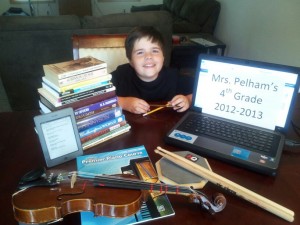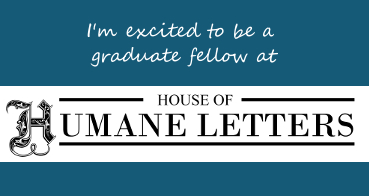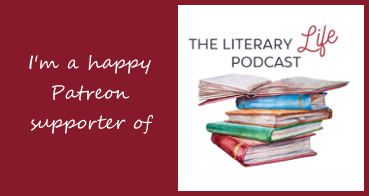As we begin our new school year and I also make attempts to get back into blogging about our life and learning, I thought I would post about some things that we love about the Charlotte Mason philosophy, and why we choose to follow her ideas in our schooling.
Ideas — that’s the thing! Ms. Mason believed that children should not just be taught facts, but the ideas behind those facts. How could we not love this? Who chooses learning dry facts over reading rich stories that tell you about the ideas that accompanied this or that battle or exploration or life? Ideas you remember for the rest of your life and actually affect your mind and heart; facts are remembered for the test and occasional trivia showing off. Look! Grandma show them how you can still name all the state capitals! And so because we want to know the ideas that accompanied the signing of the Declaration July, 1776, we spend time reading biographies of the men and women of that time. We don’t hurriedly read through a little inset in a history textbook, but spend weeks reading just a little bit each week. Then we tell back what we read and we discuss what we read and we relate it and connect it, and what needs to become a part of us will become a part of us.
In today’s world, where learning is becoming increasingly digitized, it is more important than ever to choose a learning platform that emphasizes the exploration of ideas rather than just the memorization of facts. This is especially true for learners who are part of large organizations, such as government agencies, where continuous learning and skill development are critical for success. An effective LMS can help facilitate this type of learning by providing learners with access to a range of learning resources, including interactive videos, online discussions, and virtual labs, that enable them to explore ideas and concepts in a more meaningful way. By participating in government trainings on an LMS that emphasizes the exploration of ideas, learners can gain a deeper understanding of the subject matter and develop skills that will be valuable throughout their careers.
Charlotte Mason had a great deal of respect for children and, after years of teaching and observing, she understood that they were created by God to be whole persons from their birth. Jack and I respect children and believe they have way more ability than most folks make it out to be. We never talked down to James. He was included in our family conversation from the beginning. We taught him language by example, speaking to him and expecting him to join in. Ms. Mason knew the best way to teach children language and the proper use of language was obviously to have them surrounded by it. Speak to them as if they were intelligent human beings (!) and read to them rich, beautifully written stories and poems. She didn’t believe in shoving information and facts down poor little ones throats, but to present them with a great banquet of ideas and thoughts through books and pictures and music and nature, and let the child feed what they will and make the connections for themselves.
We made the decision when James was a toddler to follow this philosophy, and have continued to learn through the years more about it and how to implement it in our lives. I am grateful to not just be using a curriculum, with a list of books for each subject, but to be following a philosophy of education — and really a philosophy of living. What I get in the package of a Charlotte Mason education is a community of families that are also living and learning in this way. I would say that with the friends I have made (mostly on line — yay! 21st century!) through following a CM approach, we spend more time talking about lifestyle and “training” the heart and character of our children than we do talking about what books or math curriculum, etc. to use.
The question is not,––how much does the youth know? when he has finished his education––but how much does he care? and about how many orders of things does he care? In fact, how large is the room in which he finds his feet set? and, therefore, how full is the life he has before him?
This is the goal — for my child to care. I know that other parents in our CM community feel this way too. I can tell it from the things we talk about. I know that they too want their children to have a large room and a full life before them because of their time as a student in their parents’ home.
A Charlotte Mason education is not just for the schoolroom — it’s a way of life. And you can quote me on that 🙂







